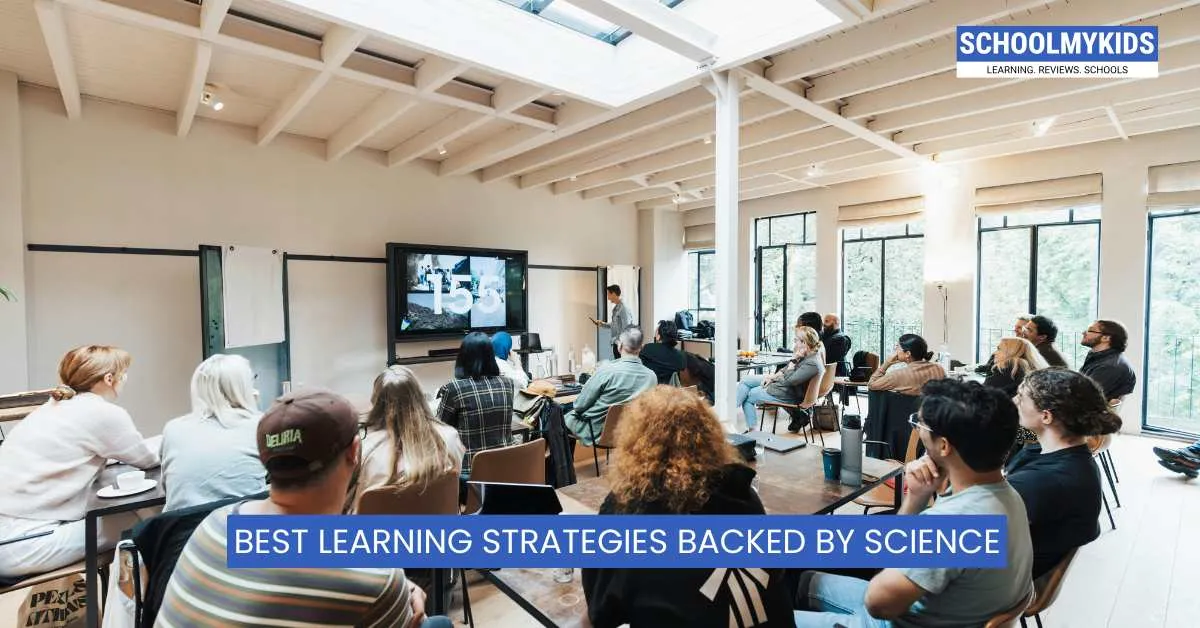Studying hard doesn’t always mean studying smart. Many students spend hours rereading notes, highlighting pages, or cramming the night before an exam, but these methods rarely lead to lasting learning. Research in cognitive psychology and neuroscience shows that some strategies are far more effective than others. If you want to learn efficiently and remember what you study, here are the best evidence-backed strategies to try.
Active Recall: Test Yourself, Don’t Just Read
Instead of passively reviewing notes, ask yourself questions.
- Why it works: Research shows that retrieving information strengthens memory more than rereading.
- How to use it: After finishing a topic, close your notes and write down everything you can recall. Use flashcards (like Anki or Quizlet) to quiz yourself regularly.
Spaced Repetition: Spread Out Study Sessions
Cramming might help in the short term, but information fades quickly without reinforcement.
- Why it works: Spacing out review sessions over days or weeks strengthens memory retention.
- How to use it: Review new material after 1 day, then 3 days, then a week. Apps like Anki automate this schedule using algorithms.
Interleaving: Mix Up Your Subjects
Don’t just study one type of problem repeatedly.
- Why it works: Studies show that mixing different but related topics improves problem-solving and adaptability.
- How to use it: If you’re studying math, mix algebra with geometry and statistics. In language learning, practice vocabulary, grammar, and listening together instead of isolating them.
Elaboration: Explain in Your Own Words
Explaining concepts helps deepen understanding.
- Why it works: When you connect new information to what you already know, your brain builds stronger links.
- How to use it: Teach the concept to a friend, or pretend to teach an imaginary class. Even writing an explanation in simple words works wonders.
Dual Coding: Combine Words and Images
Our brains process visuals and text differently, and combining them enhances learning.
- Why it works: Using multiple channels (text + visuals) makes it easier to remember and recall.
- How to use it: Draw diagrams, flowcharts, or mind maps alongside your notes. Pair summaries with images, icons, or even doodles.
The Testing Effect: Practice with Exam Conditions
Taking practice tests isn’t just about assessment — it’s about learning.
- Why it works: Simulating exam conditions reduces anxiety and improves recall under pressure.
- How to use it: Time yourself, practice with old papers, or create your own test questions.
Sleep and Breaks: The Hidden Strategy
No amount of caffeine can replace sleep when it comes to memory.
- Why it works: During sleep, the brain consolidates learning. Without rest, retention drops dramatically.
- How to use it: Aim for 7–8 hours of sleep. Use the Pomodoro Technique (25 minutes study, 5 minutes break) to stay fresh.
Growth Mindset: Believe in Improvement
It’s not fluff — mindset matters.
- Why it works: Research by Carol Dweck shows that students who believe intelligence can grow perform better.
- How to use it: Treat mistakes as feedback, not failure. Reflect on what went wrong and how to adjust strategies.
What Not to Do
Science also tells us what doesn’t work:
- Passive rereading
- Highlighting everything
- All-night cramming
These methods give the illusion of learning but don’t lead to long-term retention.
Conclusion
Learning is less about how many hours you put in and more about how you use those hours. Active recall, spaced repetition, interleaving, elaboration, and dual coding are strategies backed by solid evidence. Add good sleep and a growth mindset, and you’ll not only study smarter but also build knowledge that sticks for life.









Be the first one to comment on this story.